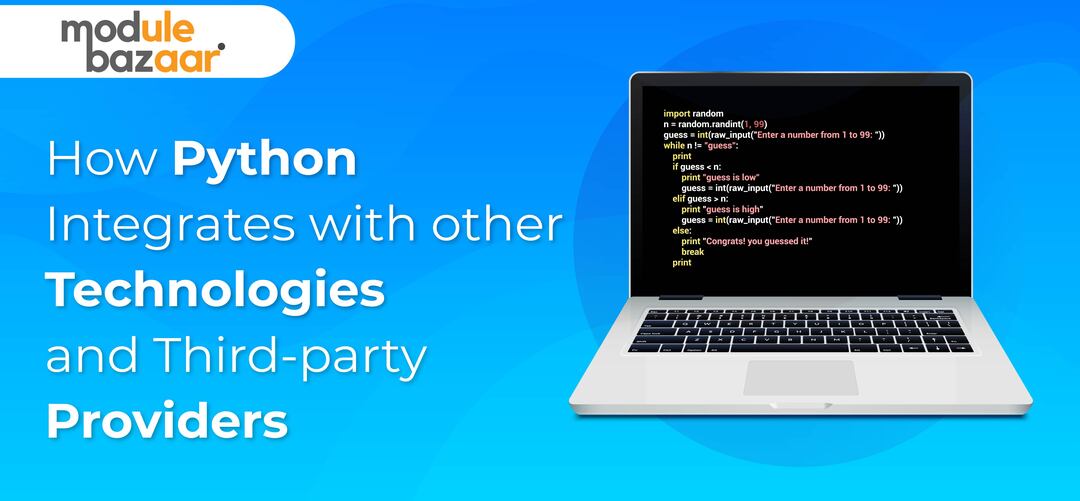Share the post "How Python Integrates with other Technologies and Third-party Providers"
Enterprises that adopt new technologies for their own use or for their customers always need to consider the obstacles of how they will impact other technologies they rely on. Companies may be dependent on the software they’ve used for a long time, or they may have a need to support the most popular technologies that their customers want to use.
Regardless, this makes the integration of third-party systems one of the most important issues in development. Python-based development makes full use of Python’s potential for integrations. To meet new trends toward modular development, consider how Python for web development can support a variety of third-party integrations.
Python is a popular, easy-to-use modern programming language that emphasizes code readability. In addition to its simplicity, it has numerous libraries and resources that make it ideal for web development and app development purposes. In particular, it has established frameworks for web development like Django and Flask that are ideal for website development and management. Enterprises can use Python for a variety of purposes to create SaaS products and more.
Existing free and open source integrations
One of the most useful qualities of Python when considering integrations is that there are many open-source integrations for common third-party systems. You can expect that many developers have already taken on problems like integrating Paypal, Salesforce, Quickbooks, or other leading platforms.
Django and other web frameworks support packages including essential eCommerce app development functionalities like shipping, taxes, currency conversion, and shopping carts. Beyond this, they also offer integrations with specific platforms like Shopify, Stripe, and Paypal. Bringing familiarity to customers through reliable shopping and payment platforms is important. If you can find existing integrations, they should take minimal adaptation to fit your needs. This is valuable because you can find out what integrations are out there before deciding on Python development, giving you more confidence in your choice.
Read Also:- Which technology is the best for the front-end development of your website?
Using APIs
Integrating third-party applications depends heavily on the APIs that the third parties provide. Using a REST API lets you easily send HTTP requests to access data with an API. In general, the language is able to handle many different APIs and standardization comes easy. Without APIs from the applications, integrations would be time-consuming or impossible. Python offers resources for finding and using APIs, as well as advice for application developers who want to create APIs that are ideal for Python developers. For logging errors that arise from complications in API integrations, Full Stack Python suggests tools like Sentry and Loggsy.
Integrating with databases
Importing databases from legacy systems can be a huge obstacle. Databases may contain information such as customer lists, product inventories, accounting data, and more, and if any of this has to be manually transferred to a new web platform or data from the web needs to be sent to the existing database, Python has a large number of libraries that can help with imports and integrations using object-relational mapping (ORM). Examples include DjangoORM and SQLAlchemy. PONY ORM is another valuable tool for querying databases in Python syntax. These libraries can help query MySQL, PostgreSQL, and other databases for information easily without needing to alter the raw database to fit Python’s structure.
Creating databases through Python is also an option since Python has built-in database support. Databases can become extremely complex over time, with many different fields and relational information, but with Python tools for querying and interacting with databases, they can be used quickly and effectively to store massive amounts of data and supply it for a variety of purposes in web and enterprise applications.
Choosing Python Development
With the current trend of web-based, modular systems that integrate with numerous external sources, the simplicity and adaptability of Python development are crucial. A Django development company will be prepared to find integration solutions for everything their clients need.


